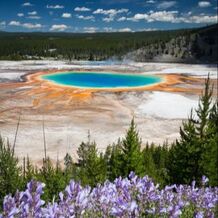A C C O
|
With the second month of 2021 off to a start and the recent inauguration of President Biden, it feels as if 2021 has truly begun. With this comes a new year for the climate change fight. 2021 will be an essential year for climate action, so it is important to be aware of what the biggest and most urgent issues are, and what we can do to make them happen. But it is also important, I think, to take a moment to look back at 2020 and all that people have accomplished, despite the many barriers. So without further ado, here are the top 3 climate successes of 2020, and the top 3 most important climate issues to follow in 2021 :) First off, the good stuff: what we accomplished in 2020 |
AuthorSerafina Scalo is a senior at McCallum HS. Enjoy her writing! |





